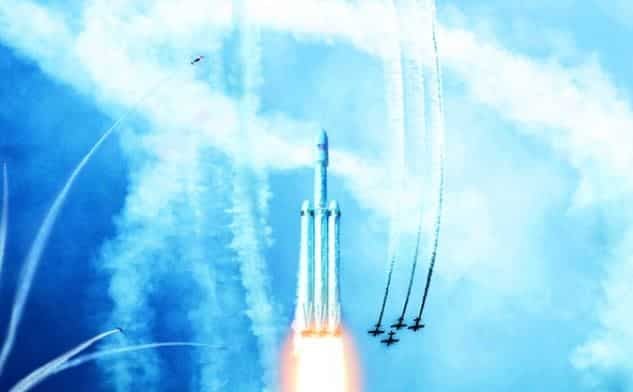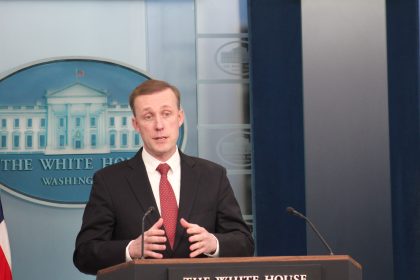Space Force Chief Pushes for Shift in Satellite Defense Strategy

WASHINGTON — The new chief of space operations for the U.S. Space Force advocated for a shift in defense strategies Tuesday at a Senate hearing.
He recommended that the United States put large groupings of small satellites into low earth orbit over U.S. adversaries.
As China and Russia develop sophisticated anti-satellite systems, the large high-orbit satellites used by the U.S. military are easy targets, said Space Force Gen. B. Chance Saltzman.
“More satellites creates a targeting problem,” Saltzman told the Senate Armed Services subcommittee on strategic forces.
Saltzman is the second chief of space operations for the three-and-half year old military branch. He assumed the job four months ago.
The Armed Services Committee invited him to speak with the senators to hear his opinions on how space-based U.S. weapons systems should be deployed as Congress heads into the 2024 military funding cycle.
He gave an intimidating description of space becoming hotly contested among the militaries of the United States, China and Russia, potentially giving the ultimate advantage to whoever dominates the race for orbital supremacy.
“Space is critical to modern warfare,” Saltzman said.
The “Proliferated Low Earth Orbit” constellations Saltzman suggested have become practical in recent years as the commercial space industry miniaturized its satellite technology, which also lowers costs. Corporations competing for Proliferated LEO contracts include SpaceX, Amazon, Samsung and Telesat.
However, China and Russia are improving their ability to blind, disrupt or destroy the satellites, Saltzman said. They are using cyberware, directed energy lasers and “space-to-space orbital engagement systems,” he said.
The result is that space is becoming congested as militaries put more satellites or the systems to destroy them in orbit, he said.
“We’re getting close to 100 launches a year,” Saltzman said.
The Space Force is operating with a $19.2 billion annual budget. About $4.2 billion is spent on procurement of technology or equipment, such as from private contractors.
Much of the rest goes to research and development by Space Force “guardians.”
He described the guardians as some of the best and brightest in the U.S. military but added that they need specialized training to stay abreast of their highly technical field.
Sen. Jacky Rosen, D-Nev., said the Space Force was creating an incentive for more education in Science, Technology, Engineering and Math.
Sen. Mark Kelly, D-Ariz., said he was encouraged about potential success for the Space Force by a rocket launch safety record that indicates most catastrophes could be avoided.
“We just need to keep that going,” Kelly said.
You can reach us at [email protected] and follow us on Facebook and Twitter.
























